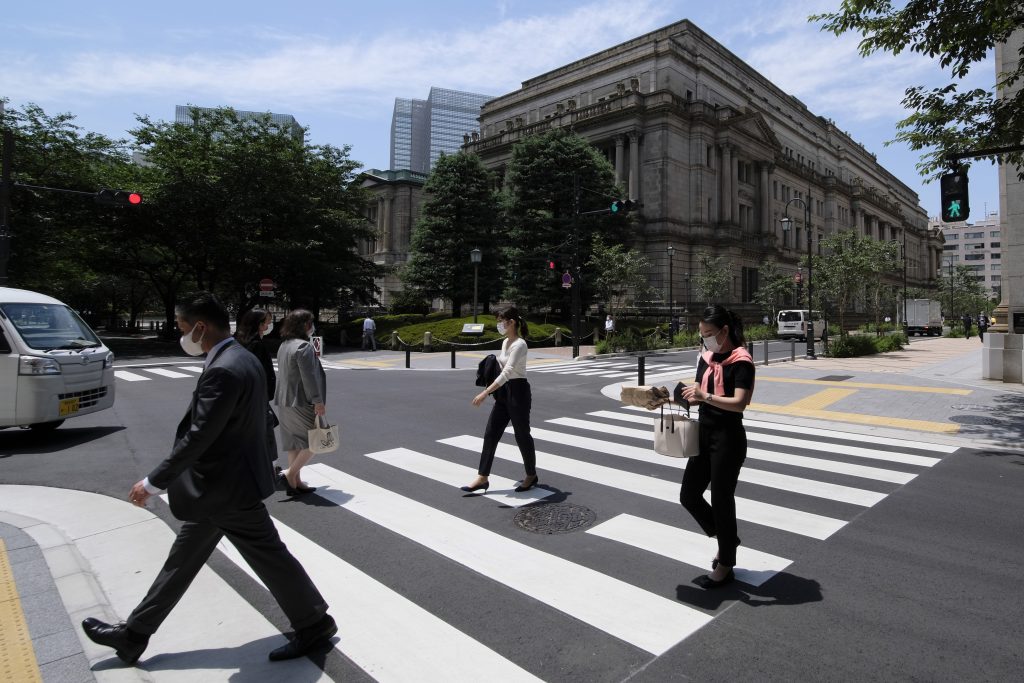
- ARAB NEWS
- 11 Jul 2025

TOKYO: The Bank of Japan is set to keep monetary policy steady on Thursday and signal its readiness to extend the duration of a crisis-response package that has become a primary tool to deal with the deepening economic impact of the coronavirus crisis.
While the BOJ is seen slightly cutting its growth and price forecasts, many board members see no immediate need to expand stimulus on the view the world’s third-largest economy is headed for a modest recovery, sources have told Reuters.
The central bank is expected to maintain its yield curve control (YCC) targets at -0.1% for short-term interest rates and 0% for long-term yields at a two-day rate review ending on Thursday.
“The BOJ probably feels it’s premature to debate in depth ways to directly prop up economic and price growth,” as it continues to focus on easing funding strains caused by the COVID-19 crisis, said Hiroshi Ugai, chief economist at JPMorgan Securities.
Much as YCC remains the BOJ’s key policy framework, cutting the yield targets has become a less likely option due to the intense strain on bank margins from years of ultra-low rates.
That has increased the importance of a package of steps the central bank introduced from March through May, which includes aggressive purchases of corporate debt and a new lending facility to funnel money to smaller firms via financial institutions.
BOJ officials have said the package will serve as the first line of defense to counter the persistent pressure from COVID-19, suggesting that other tools such as rate cuts will be saved for more extreme shocks such as an unwelcome yen spike.
“For the time being, the BOJ can respond to risks using the package of measures,” said a source familiar with its thinking, a view echoed by two other sources.
At his post-meeting briefing, BOJ Governor Haruhiko Kuroda is expected to reiterate the bank’s readiness to extend the March 2021 deadline for the package of measures if necessary.
“Extending the deadline is a near certainty,” another source said. “The question is not whether, but when.”
The decision will likely be made by January next year to give financial institutions enough time to prepare for the extension of the programme, the sources said.
Japan’s economy suffered its biggest postwar slump in the second quarter and analysts expect any rebound to be modest, as uncertainty over the extent of the pandemic’s fallout weighs on consumption and capital expenditure.
Although Kuroda has vowed to act without hesitation to support the economy, the central bank is left with a dearth of ammunition given interest rates are already near zero.
In a quarterly review of its projections due on Thursday, the BOJ will likely forecast that inflation will remain short of its 2% target at least until early 2023, the sources said.
Reuters